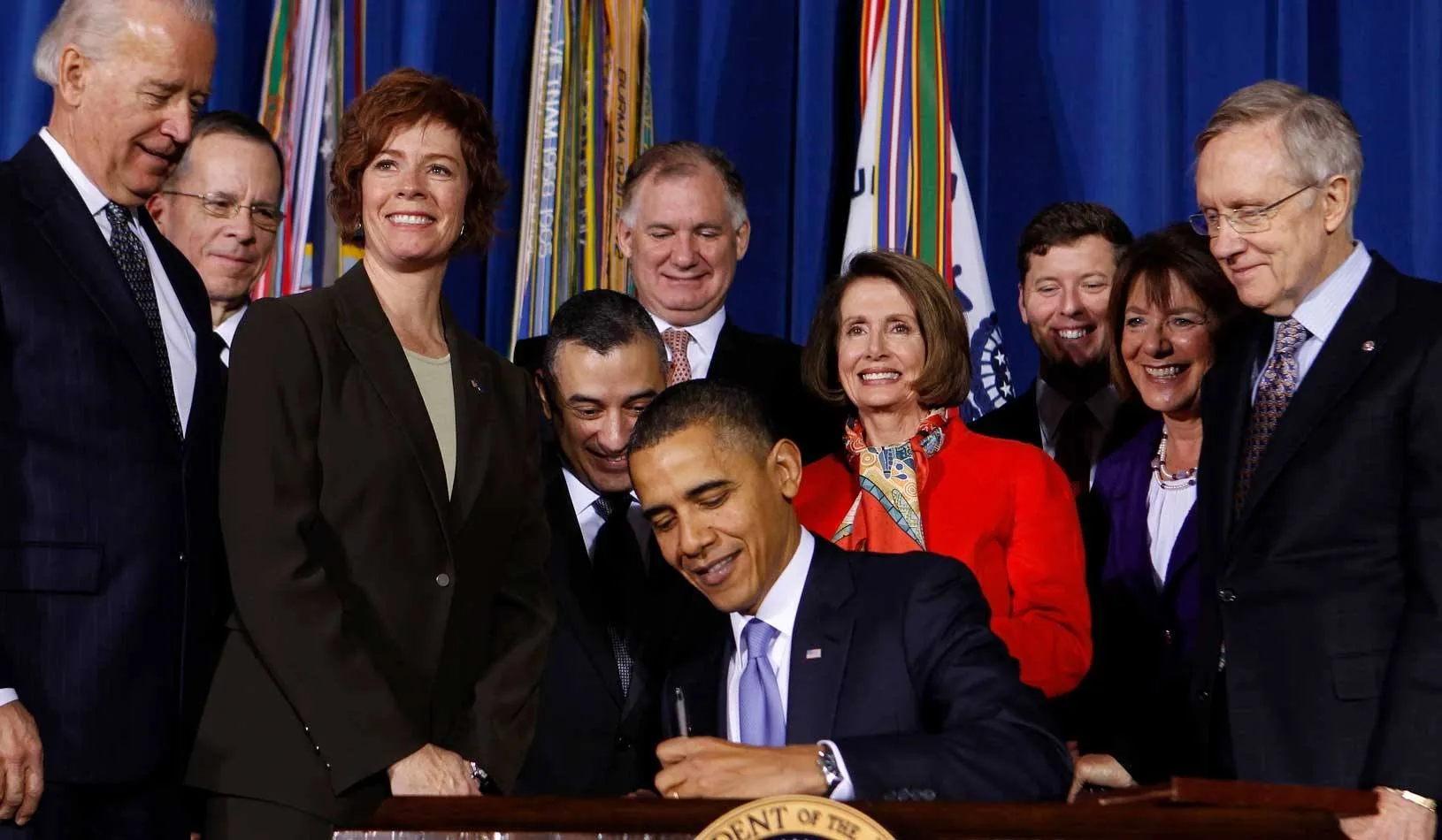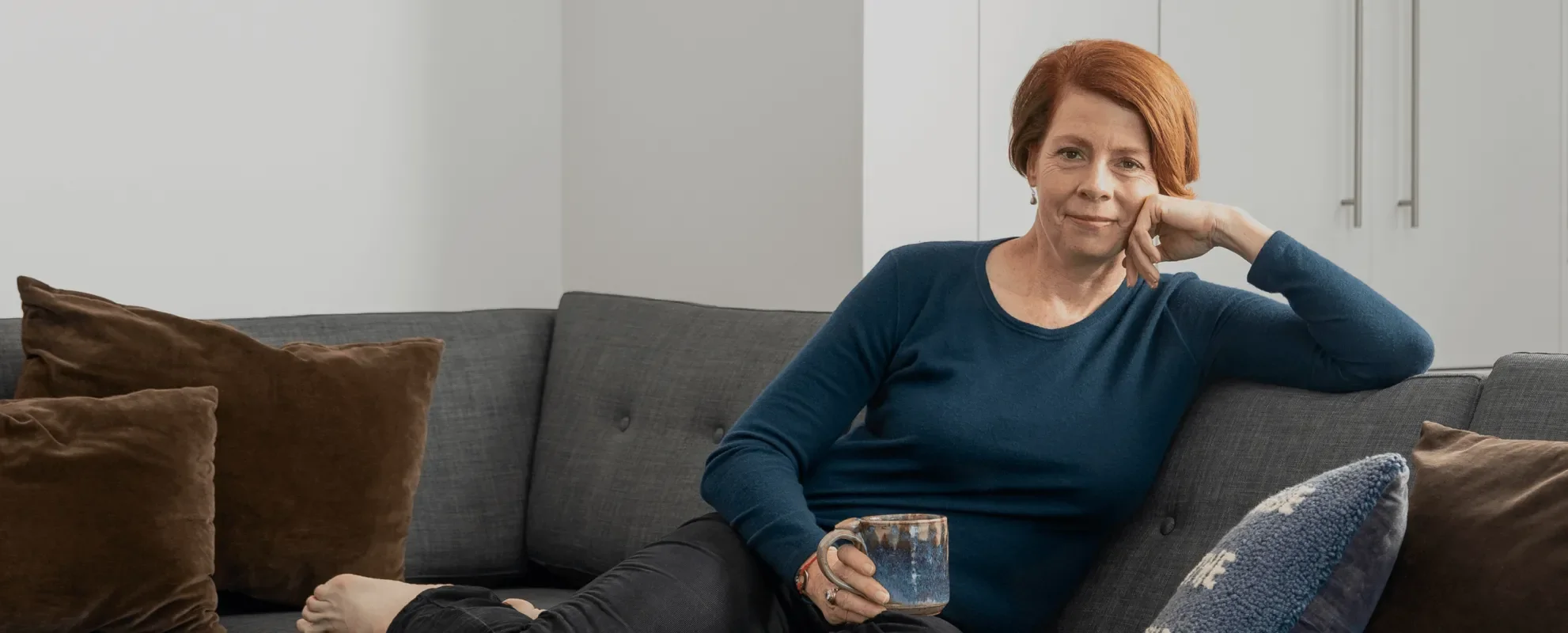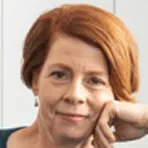Sean Harold Rosenberg still remembers a rush of admiration as he listened to a guest speaker during his first year at Stanford Graduate School of Business.
The speaker was retired Navy Commander Zoe Dunning, MBA ’93, a U.S. Naval Academy graduate who in 1993 openly defied the ban on gays in the military, which eventually became known during the Bill Clinton administration as the “Don’t Ask, Don’t Tell” policy. While studying at Stanford GSB, Dunning appeared at a public rally and proclaimed, “I am both a naval officer and a lesbian, and I refuse to live a lie anymore.”
“I was just awestruck by all she’d done,” says Rosenberg, a third-year Stanford student pursuing both a law degree and an MBA who helped choose Dunning for the Military Service Appreciation Award from the school’s Veterans Club. The award was presented to her at a gala on May 16. “It’s hard to hear Zoe speak about the things she has done without feeling that you’ve never accomplished anything yourself. She saw something was wrong and wanted to be part of the solution. That willingness to say, ‘This isn’t right and needs to be fixed,’ is super inspiring.”
Dunning, now a management consultant for Oakland-based Future State, won subsequent legal proceedings and ended up serving for more than 13 years as one of the military’s only openly gay service members. In December 2010, President Barack Obama invited her to stand beside him as he signed a bill repealing “Don’t Ask, Don’t Tell,” ending decades of institutionalized discrimination against gay military service members.
Looking back, do you think the military’s “Don’t Ask, Don’t Tell” policy was a flawed but necessary step?
I believe Bill Clinton tried to deliver something that would provide relief for gays and lesbians in the military. Unfortunately, one of the unintended consequences was that it created tremendous focus and attention on gays in the military and resulted in discharges increasing rather than decreasing. Over 13,000 service members were discharged during the “Don’t Ask, Don’t Tell” era. There was a lot of enforcement of “Don’t Tell,” but not a lot of enforcement of “Don’t Ask.”
U.S. President Barack Obama signs the Don’t Ask, Don’t Tell Repeal Act of 2010 into law at the U.S. Department of Interior in Washington, December 22, 2010. From L-R are (standing): Vice President Joseph Biden, Chairman of the Joint Chiefs Mike Mullen, former U.S. Navy Commander Zoe Dunning, former USMC Staff Sgt. Eric Alva, Deputy Secretary of Defense William Lynn, Speaker of the House Nancy Pelosi, Rep. Patrick Murphy (D-Pa), Rep. Susan Davis (D-Ca), and Senate Majority Leader Harry Reid. | Reuters/Larry Downing
Is requiring that kind of secrecy in the military compatible with organizational integrity?
Absolutely not. That became the basis for the demise of the policy. It was compromising both individual integrity as well as organizational integrity, so that was part of my motivation for coming out and challenging the policy. It was counter to the values of my education at the Naval Academy, which was all about honor, courage, and commitment.
Why was coming out publicly at that 1993 rally such a critical moment for you?
I had transitioned to the reserves because I wasn’t quite ready to say goodbye to the military yet, and I also thought it would provide a nice supplemental income while I paid Stanford tuition. When the organizer of the rally asked me to speak, my gut reaction was, “No, why would I create turmoil at this point?” But I kept thinking, “What would I say if I did say something?” In many ways, the leadership training I received in the military and at Stanford made me question the ethics of that. It made me think twice about whether I could make a difference.
You called your sisters beforehand and warned them what might be coming, right?
My one sister, Amy Dunning, was a Marine Corps JAG officer and a lesbian herself. She gave me great legal advice as I went into this. During those 13 years I was openly gay in the Navy, she was closeted in the Marine Corps Reserve.
What kind of conversations did you have with her?
She was proud of me, but she didn’t feel like she was willing to step forward herself at that point. Her contribution was to just do a good job. At my first discharge hearing, she testified about my moral character and upbringing, about our mother having served in the military, and about how she hoped they would allow me to continue my career. At the hearing, one of the officers on the administrative discharge board asked my sister point blank whether she, too, was a lesbian, under oath. My attorney objected, the objection was sustained, he withdrew the question, and she never responded. But there was this incredibly long, painful silence before our attorney objected. And my sister has told me since that she sometimes reflects back and wonders how her life would have been different if she’d answered the question.
Does she regret that?
Quote
Being in the military and keeping a secret, pretending I was straight, it takes a daily toll. It’s death by a thousand tiny cuts.
She often talks about how I had this big retirement ceremony on the flight deck of the USS Hornet, and there were media there, and it was a big deal. I was piped over the side with my wife on my arm — the first time that had ever been done with a same-sex couple. My sister actually outranked me. She reached the rank of colonel and had a much more prestigious career than I did. But when it was time for her retirement, she didn’t have a ceremony of any sort — this was before “Don’t Ask, Don’t Tell” was repealed — because she couldn’t invite the people she wanted to attend, and she couldn’t say what she wanted to say.
What does that tell us about that policy?
It shows the arbitrariness of it, because I was allowed to be out and continue to serve, and she wasn’t. When I won my case, it was bittersweet, because I won it for myself, but I wasn’t able to go to court and challenge the constitutionality and therefore was unable to help anyone else who was impacted by the policy.
What drove you during those years?
The chance to meet service members who had been impacted, to hear their stories about how much they mourned the loss of their careers or how painful and devastating the investigations were into their lives. Just hearing their stories kept me going.
You once advised high school students to “be your authentic self.” Why is that important?
It takes tremendous time and energy and emotional toil to pretend you’re something you’re not, or to try to fit into something that’s not authentic. Being in the military and keeping a secret, pretending I was straight, it takes a daily toll. It’s death by a thousand tiny cuts. Frankly, my experience at the Stanford business school was the first time I could start to be my authentic self. I joined the LGBTQ business student group and ended up co-leading the group my second year. I credit the business school for creating a safe space for me to be out about my sexual orientation and start my activism.
Was it still hard to be gay at Stanford in 1991?
In 1991, the gay group on campus would meet off campus. We had old-school mailboxes. They would announce the times and dates of the meetings and staple them shut and put it in your box so others couldn’t see it and you wouldn’t be outed. The membership of the group was kept secret. It just didn’t feel safe. But the Class of 1994 that came up behind me was this amazing group of very out and proud students. They really changed the dynamic of the business school by being their authentic selves. We organized and held the first LGBTQ student-sponsored social event, in 1993. I was proud of that.
Any thoughts on the recent exclusion of transgender people from military service?
I deeply believe the recent prohibition is unconstitutional, and I hope able-bodied transgender service members and recruits who want to serve our country are allowed to continue to do so now and in the future. It’s pure and plain discrimination to prevent them, based on biases and fear.
You once quoted someone as saying, “If you don’t have a seat at the table, you’re probably on the menu.” Do you feel that all Americans in the military have a seat at the table?
I think transgender service members were given a seat, and now that chair has been pulled out from under them. The military has changed so much in the 37 years since I took my oath at Annapolis. Women serve in submarines. Women can go through infantry training. Women can fly combat missions. But it’s still evolving in terms of integration of women. There’s still sexual harassment, and sexual assault is a big problem that the military still needs to address. But we’ve gotten greater visibility to it and are getting support to change the culture around that.
What leadership qualities do you look for in others?
The ability to listen and empathize. The ability to overcome obstacles, and resilience in overcoming obstacles. Authenticity and transparency. And basic integrity — being true to your word and standing up for what’s right.
Any unforgivable sins when it comes to leadership?
Hypocrisy. Asking folks to do what you won’t do yourself. And creating a culture or an atmosphere of bullying or harassment. A leader is responsible for the culture of their organization, and they can either contribute to a culture of harassment, turn a blind eye to it, or actively seek to eradicate it.
Do you have any specific or general advice for incoming Stanford GSB students?
Take the course on Interpersonal Dynamics. That was probably the most important course I took and it has served me well throughout this entire process and in my civilian career as well. That class provides an amazing laboratory to experiment and learn about yourself. Emotional intelligence. Active listening. Influence. Those are critical things to learn. I guess my broader advice to prospective students, current students, and even alums is to follow your heart and passion. What’s the school’s vision? “Change lives. Change organizations. Change the world.” Follow that vision. You never know what will happen.



